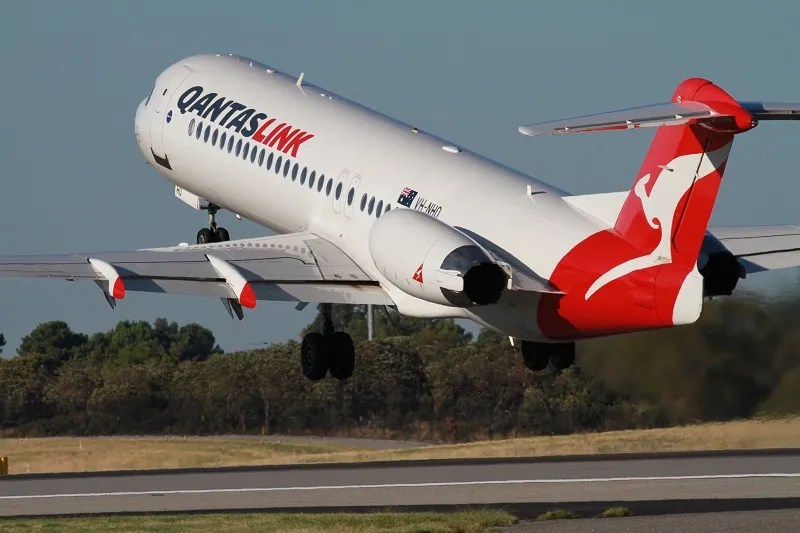
Qantas financial strength will see it through COVID19
May 05, 2020

Qantas has demonstrated significant financial resilience that positions it well to navigate the challenges posed by COVID-19. With a strong balance sheet, substantial cash reserves, and strategic cost management measures, the airline is equipped to withstand the downturn in travel demand. Its diverse revenue streams, including freight services and loyalty programs, further bolster its financial stability. Additionally, Qantas has implemented proactive measures to streamline operations and enhance efficiency, ensuring a quicker recovery as travel restrictions ease. This robust financial foundation allows Qantas to adapt to the evolving landscape of the aviation industry and emerge stronger post-pandemic.
Qantas Airways, the flag carrier of Australia, has long been recognized for its financial stability and operational resilience. As the COVID-19 pandemic continues to impact the global aviation industry, many airlines face unprecedented challenges. However, Qantas's financial strength positions it to navigate through these turbulent times effectively. In this article, we will explore the key financial metrics that underline Qantas's robustness, how the company has adapted to the changing environment, and the strategies it is employing to ensure its future viability.
Financial Metrics Highlighting Qantas's Strength
One of the primary indicators of an airline's financial health is its ability to generate cash flow. Qantas has consistently demonstrated strong cash flow generation capabilities. As of the latest financial reports, Qantas reported a significant cash reserve, providing a safety net during periods of reduced travel demand.
| Financial Metric | 2023 Results | 2022 Results |
|---|---|---|
| Cash Reserves | $3.3 billion | $1.5 billion |
| Operating Revenue | $17 billion | $8 billion |
| Net Profit | $1.2 billion | Loss of $1.1 billion |
These figures illustrate a remarkable turnaround for Qantas, highlighting its ability to bounce back from the financial setbacks experienced during the pandemic. The increase in cash reserves equips the airline with the liquidity needed to weather ongoing challenges and invest in recovery strategies.
Cost Management and Operational Efficiency
Another crucial aspect of Qantas's financial strategy is its rigorous cost management. The airline has implemented several measures to reduce operational costs without compromising service quality. This includes optimizing route networks, renegotiating supplier contracts, and investing in technology to enhance operational efficiency.
By focusing on cost containment, Qantas has been able to maintain competitive pricing in a challenging market. This approach not only supports profitability but also positions the airline to attract price-sensitive travelers who may be more hesitant to fly during uncertain times.
Adaptation to Market Conditions
Qantas's proactive response to changing market conditions has played a significant role in its resilience. As international travel restrictions have fluctuated, the airline has adapted its capacity and service offerings accordingly. For instance, Qantas has increased domestic flights to meet rising demand as Australians seek travel opportunities within the country.
The airline has also expanded its cargo operations, capitalizing on the demand for freight services during the pandemic. This pivot not only generates additional revenue but also helps to keep aircraft flying, which is crucial for maintaining operational readiness as international travel rebounds.
Government Support and Financial Assistance
Throughout the pandemic, Qantas has benefited from various government support measures aimed at stabilizing the aviation industry. These initiatives have provided financial assistance that has helped to offset losses and sustain operations during low-demand periods. Such government backing has been instrumental in ensuring Qantas's financial strength remains intact.
Future Outlook and Strategic Initiatives
Looking ahead, Qantas is focused on strategic initiatives that will drive growth and recovery in the post-pandemic landscape. The airline has announced plans to expand its fleet and enhance its sustainability efforts, aligning with global trends toward greener aviation. This commitment not only meets consumer expectations but also positions Qantas favorably for future investments.
Additionally, Qantas has been investing in technology to improve the customer experience, streamline operations, and enhance safety protocols. By embracing digital innovations, the airline aims to attract more travelers and build loyalty among its customer base.
Conclusion
In summary, Qantas's "financial strength" and strategic agility have enabled it to navigate the challenges posed by COVID-19 effectively. With robust cash reserves, proactive cost management, and adaptability to market conditions, the airline is well-positioned for recovery. As the aviation industry gradually rebounds, Qantas's commitment to innovation and sustainability will play a crucial role in its long-term success.
With a clear focus on enhancing operational efficiency and customer satisfaction, Qantas is set to emerge from the pandemic as a stronger competitor in the global aviation market. The airline's ability to leverage its financial strength and implement strategic initiatives will not only ensure its survival but also pave the way for future growth and profitability.
Related Articles

Explore Thailand: The Best Islands to Visit for Paradise, Adventure, and Relaxation

The Ultimate Guide to the Best Islands in Thailand for Your Next Getaway

Do babies need passports? How to get a passport for a newborn

How to get a U.S. passport fast: here’s how to expedite the process

What is Mobile Passport Control: 5 reasons why you should use it

SENTRI vs. Global Entry: A detailed guide

Do you need a passport to go to the Bahamas? Let’s find out

Do you need a passport to go to Mexico? A detailed guide

Do you need a passport to go to Canada? We got the answer

Do You Need a Passport for a Cruise: An Essential Travel Guide

Booster Seat Requirements: All the Rules to Follow in Your Rental Car

What Are the World’s Most Powerful Passports, and How Does Yours Rank?

How to Take a Passport Photo at Home: A Helpful Guide

You've got to have heart! Southwest's new livery

Your opinion: Should water be free on low cost carriers?

Young women bolder than guys as solo travellers
